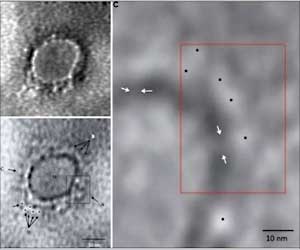Real-world data provides valuable insights to help organizations better understand, monitor and prepare for the any challenges that the COVID-19 outbreak presents.

‘Real-world data provides valuable insights to help organizations better understand, monitor and prepare for the any challenges that the COVID-19 outbreak presents.’





Urte Jakimaviciute, MSc, Senior Director of Market Research at GlobalData commented: “Technological advancement has made it possible to aggregate data, not only from healthcare providers but also from technology networks such as mobile apps. Through the analysis of data generated from these various networks, healthcare organizations can provide real-time disease monitoring and control. For example, during the Ebola crisis in 2014, forecasters successfully used simulations that combined real-world data on populations and human mobility with elaborate stochastic models of disease transmission to predict the global spread of the disease.” With the COVID-19 outbreak still unfolding, data collected from contact-tracing apps, medical practice and clinical trials will play an important role in tackling the spread of the virus. The RWE can facilitate resource and capacity planning for intensive care, identify at-risk patient groups and geographic locations that may need more rigorous interventions to control the outbreak, assess the impact of potential treatments, and accelerate the development of new medicines.
Jakimaviciute continues: “RWE has a huge potential to help healthcare organizations to make timely decisions in order to mitigate the impact of the COVID-19 outbreak. The importance of RWE in the COVID-19 crisis was recently highlighted by the US Food and Drug Administration (FDA), with the organization acknowledging that different real-world data sources can complement traditional clinical studies and speed the process of evaluating the impact of promising COVID-19 therapies.”
While the RWE may be seen as a step forward to manage the COVID-19 outbreak, collection of the data can pose some privacy-related concerns. With many countries working on developing COVID-19 contact-tracing apps, privacy implications are taking more precedence in a public debate.
Jakimaviciute continues: “Mobile contact-tracing apps have definitely played an important role in easing up the spread of COVID-19 in China. Nevertheless, in the countries with strict data privacy laws, the implications on individual privacy are seen as one of the major associated concerns. While cryptographers are now working on improving tracing apps’ privacy to address the issue, any use of such technologies is always associated with elevated cyber risks concerns. Another potential issue is the length of tracking. We could be bound to use these surveillance apps until the vaccine becomes available to public, assumingly for at least for a year.”
Advertisement















